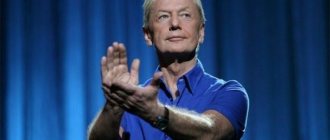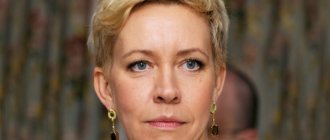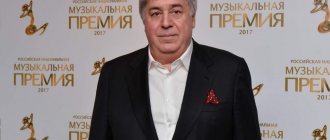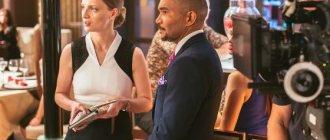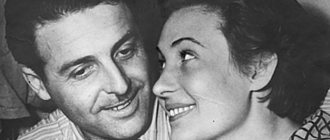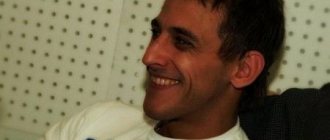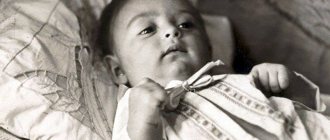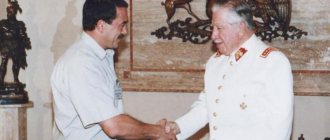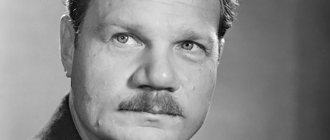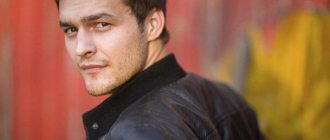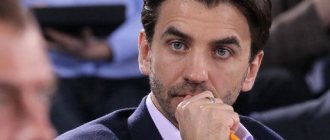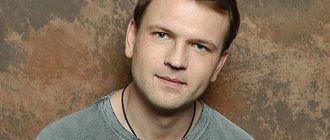Mikhail Fridman (born April 21, 1964) is a prominent Russian businessman of Jewish origin. He is Chairman of the Supervisory Board of Alfa Group, one of the largest private investment companies in Russia. In 2014, Forbes magazine estimated his fortune at $15.6 billion, making him the second richest person in Russia. How did Mikhail Fridman achieve this position? The biography, the family in which he was born and raised - this is what will help the reader understand the origins of his current success.
Childhood and youth
The biography of Mikhail Fridman began like that of millions of other Soviet boys. He was born and raised in Lviv, Ukraine. His parents, no longer young people, were engineers, and his father was awarded the USSR State Prize for the development of navigation devices for military aircraft. They were very happy when the youngest son was born into the family. Since childhood, Mikhail Fridman was distinguished by his zeal for science. During his studies, he repeatedly won school Olympiads in physics and mathematics.
Misha graduated from school in Lvov in 1980. And then to Moscow... He enters the Moscow Institute of Steel and Alloys. Many successful people got married while still students. Mikhail Fridman did not escape this fate. His wife, Olga from Irkutsk, was Mikhail’s classmate.
During his student years, his entrepreneurial spirit first manifested itself. He becomes the organizer of youth discos, inviting musicians and bards to them and paying them fees.
Lviv childhood
Mikhail Fridman maintains close relations with Ukraine. He sings praises to Lvov every time he comes there. His Lviv childhood was shrouded in the care of numerous relatives, as is customary in Jewish families. My parents worked in the defense industry, both in engineering positions. My father was awarded the State Prize for developments in military aviation. The grandmother was mainly involved in raising the offspring. She took him to a music school, where Misha studied solfeggio and played the piano very well. His musical abilities came in handy during his school and college years. Wherever he studied, his free time was occupied either with rehearsals and concerts in a rock band, or with speculation.
Parents did not want their little blood to serve in the army, so Mikhail was sent to Moscow to enter a university. He was counting on the Institute of Physics and Technology - it was not for nothing that he won the Olympiads in physics - but failed. The reason, he believes, was the wrong nationality. The young man did not tempt fate and chose his future at random - he entered the Moscow Institute of Steel and Alloys. Many famous personalities came out of it: Mikhail Grushevsky, Vladislav Surkov, Vladimir Solovyov, Valery Komissarov, Vladimir Matetsky.
One of the advantages of the institute was the presence of a House of Culture. Students created their own club and organized concerts, inviting artists and musicians. The beginning of the 80s was accompanied by a rapid surge of rock, blues and art song. But everyone had one thing in common - a fanatical enthusiasm for the Beatles. By the way, the club was called “Strawberry Glade” as in the song of the same name by the great four. Twenty years later, in 2004, Mikhail Fridman will meet one of them: Paul McCartney, who will hold a concert in front of a crowd of thousands of spectators on Palace Square. This event would not have been possible without the financial participation of Alfa-Bank, owned by Friedman, and the TNK-BP company, which was led by his friend and partner German Khan.
From his first year, Friedman had a busy life outside the walls of the institute. Together with the guys, they organized the sale of scarce theater tickets: Mikhail was the leader. He had the idea to exchange them for other shortages: medicines, clothes, shoes, food, car parts and household appliances - in Soviet times, such barter flourished because there was a limited number of goods on the shelves.
These connections will help in the future, when the enterprising Friedman begins to open his own small companies, attracting his friends.
Since 1986, the young specialist was sent to metallurgy. He was already married to a classmate, Olga, who came to the capital from Irkutsk. For two years they lived on the salaries of engineers, but this path was not to the taste of Mikhail, who by this time already knew how to make money from his business. The family waited for a room in a communal apartment, exchanged it with an additional payment for housing in the capital, and both became full-fledged Muscovites with registration. Mikhail immediately quit his job and opened a cooperative together with his classmate Oleg Kiselev. The guys were selling copying machines, and theirs. This will be the beginning of a long journey into the business of friends, whose leader will be Mikhail Fridman.
Starting a business career
After graduating from MISiS in 1986, Mikhail Fridman began working in the town of the same name near Moscow. But his time was already approaching, and when it came, Friedman did not miss the advantageous moment.
In 1988, he began his entrepreneurial activities by creating a window cleaning cooperative with a group of friends from the institute, where he employed students from different universities, providing them with the opportunity to earn additional income.
The beginning of the career of Mikhail Fridman
The young engineer began his dizzying ascent to the top of the business Olympus almost immediately after graduating from university in 1986. He was assigned to the town of Elektrostal near Moscow at the metallurgical plant of the same name, where he worked in a design bureau.
At the same time, he organized a cooperative for washing windows, then a cooperative for food delivery, and created, together with his cousin Dmitry, who graduated from the same institute a year earlier, companies that sold computer equipment.
Mikhail Fridman created Alfa Group
In 1988, together with German Khan and Alexey Kuzmichev and with the assistance of Academician Alfimov, whose name allegedly served as the basis for the formation of the name of the current financial and investment empire, Friedman began to create it.
The very first at the birth of Alfa Group were the Alfa-Photo cooperative for the sale of copying machines and the Soviet-Swiss Alfa-Eco joint venture for the export of petroleum products and metallurgy products.
Among the many areas of activity of the consortium - gas and oil processing, trade in art and food products, insurance, telecommunications services, advanced technologies, investments - Alfa Bank is considered the cornerstone, the first in the country among private banks, which a businessman has headed since his establishment in December 1990. Subsequently, he owned a 37% stake in the financial institution (Khan owned 23%, Kuzmichev - 18%, bank president Peter Aven - 14%).
In 1995, the oligarch was a member of the collective leadership body of ORT, in 2002 he headed the Conference of Leaders of Jewish Organizations of the Russian Federation, and has always strongly supported Jewish initiatives in the country and abroad.
In 2005, Alfa Group bought the X5 corporation for a billion dollars. It includes the Perekrestok and Karusel supermarket chains and Pyaterochka discount stores.
In 2008, the tycoon gave his leadership position at the bank to his deputy, ratings manager from Prague, Petr Šmide. In 2009, Mikhail Maratovich headed the oil company TNK-BP.
How did Alfa Group start?
Along with German Khan, Alexey Kuzmichev and Pyotr Aven, Mikhail Fridman founded a trading company in 1989, which was engaged in the sale of photographic materials, computers, and copying machines that had just appeared on the Soviet market at that time.
Soon, having accumulated initial capital from selling office equipment, Friedman switched to the basic product for all Russian oligarchs - petroleum products. The tool for their transshipment abroad for our hero is the Soviet-Swiss one - the prototype of the future Alfa Group.
The development of the company follows the classic pattern for Russian capital: metal products are added to commodity flows sent abroad, the volume of operations reaches such a level that in 1991 Friedman’s business structure included his own Alfa-Bank, whose board of directors he and leads.
Privatization of TNK - the peak of the business career of Fridman and Co.
Actually, this story deserves a separate study. But briefly it looks like this. In the mid-90s, the then Russian government “teared” the state-owned enterprise Rosneft, the successor to the USSR Ministry of Oil and Gas Industry, to shreds. From Rosneft, they highlight the most delicious pieces related to oil production (Nizhnevartovsk and Tyumen oil fields) and oil refining (Ryazan Oil Refinery). They are combined into a newly created enterprise, which becomes the Tyumen Oil Company (TNK), then still a state-owned enterprise. A privatization competition was immediately announced with three companies - contenders for TNCs, headed by outstanding “Russian” businessmen of that time: Mikhail Fridman (Alfa Group), V. Vekselberg (Renova) and L. Blavatnik (Access Industries). In order to more conveniently interact with each other during the privatization process, they unite into the Alfa Access Renova (AAR) consortium, which in 1997 becomes the owner of TNK for the next sixteen years.
Tyumen Oil Company: running in a circle for 16 years
During this time, the owners made many “fateful” decisions. First, in 2003, they merged with the oil corporation British Petroleum into the joint structure TNK-BP, then in 2008 they quarreled to death with their British partners, so that this quarrel was even “settled” by the High Court of London.
Finally, it became clear to the Russian leadership that during the global economic crisis the owners of TNK-BP would be of no use, and in 2013 the same state bought their shares in the long-suffering enterprise from the British and Russian owners. No one will tell Russian citizens how much the Russian state was paid in 1997 for the privatization of the Fridman-Vekselberg-Blavatnik TNK. But it is well known how much Rosneft paid for its purchase in 2012-13: the British spent $16.65 billion, and the AAR consortium - as much as $27.73 billion, despite the fact that the partners each owned approximately 50% of the shares of the combined company.
No one knows how Friedman, Vekselberg, and Blavatnik distributed this money among themselves. But judging by the fact that the first of them founded a new business in Europe with the proceeds from the sale - the investment group "L1 Group", he did not lose money.
What is Friedman's business empire like today?
Firstly, this is an investment group, which today is managed by Alfa-Bank (the largest Russian private bank), which includes such business structures as Alfa Capital Management, Rosvodokanal, AlfaStrakhovanie and A1 Group. The group owns the mobile operators Megafon and VimpelCom, and the retail chains Pyaterochka and Perekrestok.
In addition, Mikhail Fridman is the chairman of L1 Group, headquartered in Luxembourg. The business of this international investment group is focused on telecommunications assets and the energy sector of the economy. It includes two main divisions: “L1 Energy” and “L1 Technologies”. Friedman is also a member of the supervisory board of Deutsche DEA AG Erdoel, Hamburg, acquired by L1 Energy in 2020.
By the way, the board of directors of L1 Group includes old friends - Friedman’s partners, with whom he started back in the late 80s: Kuzmichev, Khan, as well as P. Aven, a former minister of the Gaidar government of Russia.
Purchasing assets in the North Sea
In March 2020, L1 Group acquired German oil company RWE Dea for more than £5 billion. It owns 12 active oil and gas fields in the North Sea and oil fields elsewhere. The deal has raised objections from the British government, which believes that it contradicts sanctions restrictions against Russian firms in connection with the events in Ukraine. L1 Group intends to create a new company to launch production in new oil fields, led by the former head of British Petroleum, Lord Brown.
On 4 March 2020, British Energy and Climate Change Minister Ed Davey gave Friedman one week to persuade the UK government not to force him to sell off the oil and gas assets he had acquired in the North Sea. How this story ended is still unknown, but given Mikhail Fridman’s experience and resourcefulness in business processes, you can be sure that he will find a way out this time too.
Figures and Facts
Alfa Group $14 billion in March 2013 from the sale of its stake in TNK-BP to Rosneft .
In March 2020, LetterOne acquired German oil and gas company RWE Dea for €5.1 billion . Friedman invited his longtime acquaintance, the former head of BP John Brown, to the position of manager of all LetterOne energy projects.
In 2013, Alfa Group created a special company for its foreign assets, LetterOne Holdings. In 2014, the group's shares in Vimpelсom were transferred to LetterOne.
Alfa Bank finances the Life Line charity foundation, which helps children with severe cardiac diseases.
Mikhail Fridman is interested in cinema, music and chess. In his free time from work, he flies by helicopter to his recreation center in the Tver region, where he not only relaxes, but also negotiates with partners.
Social activities in Jewish organizations
Friedman is an active supporter of Jewish initiatives in Russia and other European countries. In 1996, he was one of the founders of the Russian Jewish Congress, and is currently a member of the presidium of the RJC. He makes a major contribution to the work of the European Jewish Fund, a non-profit organization aimed at developing European Jewry and promoting tolerance and reconciliation on the continent.
Friedman, along with Stan Polovets and three fellow Russian Jewish billionaires Alexander Knaster, Petr Aven and German Khan, founded the Genesis Group, which aims to develop and improve Jewish identity among Jews around the world. Each year, the Genesis Group Award is presented to laureates who have achieved excellence and international prominence in embodying the character of the Jewish people through commitment to national values.
At the inaugural ceremony in Jerusalem in 2014, Friedman told the audience that it was intended to inspire a new generation of Jews through the laureates' outstanding professional achievements, contributions to human culture and commitment to Jewish values.
Membership and activities in international and Russian public structures
Since 2005, Friedman has been Russia's representative at the Council on Foreign Relations, a non-profit American organization that brings together representatives of the global establishment, whose goal is to spread the American version of democracy around the world.
Fridman is a member of numerous Russian public organizations, including the Public Chamber of Russia, the Board of Directors of the Russian Union of Industrialists and Entrepreneurs, and the National Council for Corporate Governance.
He is an active supporter of the national literary award "Big Book" and a member of the board of the "Center for Support of Russian Literature", focused on the implementation of cultural programs, promoting the ideals of humanism and respect for the values of Russian culture.
Biography of Mikhail Fridman
Mikhail Maratovich Fridman is the main owner of Russia's largest financial and industrial association Alfa Group, whose assets include Alfa Bank, X5, AlfaStrakhovanie, A1, as well as the LetterOne Holdings group (VimpelCom, DEA Deutshe Erdoel, Turkcell), member of the leadership of the Russian Jewish Congress, the Union of Industrialists and Entrepreneurs, the Public Chamber of the Russian Federation, and the private American organization Council on Foreign Relations.
Fridman Mikhail Maratovich
The oligarch, who went down in the history of the domestic elite as an honest and respected businessman, was repeatedly referred to in the media as a calculating and authoritative intellectual with an aggressive form of doing business while ignoring the interests and opinions of other parties, and was also declared a European business leader, the most influential and outstanding entrepreneur of the year .
His fortune in 2015 was estimated by Forbes magazine at $14.6 billion. Thus, he ranked 68th in the world ranking of the richest people and second among Russian businessmen after Roman Abramovich.
Mikhail Fridman: personal life
He divorced his first wife Olga quite a long time ago, more than 10 years ago. How many children does Mikhail Fridman have? Children from his first marriage are two daughters: Ekaterina (b. 1998) and Laura (b. 1995). The girls were born and lived with their mother in Paris, where they graduated from an American school. While fully ensuring a comfortable existence for his ex-wife and daughters, Friedman himself had almost no contact with them.
What does Mikhail Fridman's family look like now? For several years now he has been living in a civil marriage with former Alfa-Bank employee Oksana Ozhelskaya. According to some reports, they also have two children.
Personal life
Mikhail Fridman's personal life was not as successful as his business career. While still a student, the businessman married fellow student Olga Aiziman, with whom he was married for about 20 years. The wife gave birth to two daughters to the billionaire - Larisa (born in 1993) and Ekaterina (born in 1996). But the children did not save the family from destruction, and in the early 2000s the couple divorced.
Mikhail Fridman and Oksana Ozhelskaya
After breaking up, Olga and her children went to Paris, where she received a second education as a fashion designer. The billionaire retained the support of his first family and provides his daughters with a comfortable existence.
The second, this time, common-law wife of the oligarch was Oksana Ozhelskaya, a former employee of Alfa-Bank. In 2000, the girl gave the entrepreneur a son, Alexander, and in 2006, she gave birth to a daughter, Nika. Friedman's second marriage also broke up.
The businessman settled in London, his lifestyle is called secluded and not public. Mikhail Fridman does not use social networks, including Instagram. Photos with the oligarch rarely make it into the press. It is known that, in addition to business, Friedman is interested in collecting samurai swords, driving fast SUVs, cinema, chess and music. In 2020, Mikhail Fridman undertook an extreme jeep journey through Iran.
Mikhail Fridman with his son Alexander
To become part of the Jewish people, Friedman, in 2012, as part of a group of 12 businessmen, made a pilgrimage to Jerusalem. An entrepreneur invests in the development of the cultural identity of his own nation throughout the world. Friedman created the Genesis Philanthropy Group, which helps Russian-speaking Jews adapt to the national culture. One of the projects in this direction was support for the creation of the film “Russian Jews” by Leonid Parfenov.
